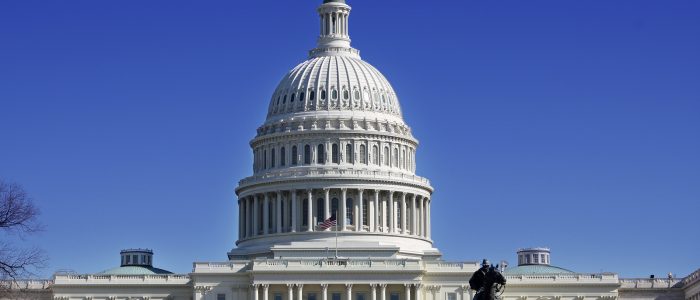
Coronavirus Emergency Legislation: What REALTORS® Need to Know
Congress has passed the Families First Coronavirus Response Act (H.R. 6201) providing support to American workers, families, and businesses, including the expansion of paid sick leave and family medical leave. It also includes refundable tax credits for small businesses and self-employed individuals to cover the cost of the leave.
NAR’s advocacy team continues to urge Congressional leaders to include support for self-employed professionals and other small business owners. This was included in the final bill.
Family Medical Leave Expansion
- Allows up to 12 weeks of certain virus-related family medical leave at pay of at least 2/3 of regular pay through the end of 2020 (however, employees must use vacation days, personal leave, or unpaid time off for first two weeks)
- Covers employees at businesses with fewer than 500 employees
- Eligible employees are those not working because the employee is caring for their child due to school or child care closure or unavailability due to a public health emergency
- Provides a refundable tax credit for eligible self-employed individuals equal to their qualified family leave equivalent
- Provides employers with a refundable tax credit equal to certain family leave wages paid to employees
- The Secretary of Labor has the authority to issue regulations exempting small businesses with fewer than 50 employees on financial hardship grounds
Paid Sick Leave Expansion
- Allows two weeks of paid sick leave through the end of 2020 (80 hours for full-time employees; pro-rata rules for part-time employees)
- Eligible employees are those not working because of quarantine, symptomatic, caring for an individual quarantined or a child due to school or child care provider closed, or for experiencing a similar condition specified by the Secretary of Health and Human Services
- Covers employees at businesses with fewer than 500 employees
- Provides a refundable tax credit for eligible self-employed individuals equal to their qualified sick leave equivalent
- Provides employers with a refundable tax credit equal to certain paid sick leave wages paid to employees
- The Secretary of Labor has the authority to issue regulations exempting small businesses with fewer than 50 employees on financial hardship grounds
Medicare, Medicaid, Health Insurance and Unemployment Changes
- Requires insurers, Medicare, Medicaid, and other federal health programs to fully cover testing and related services for COVID-19, without cost-sharing
- Increases funding to Medicaid to help cover uninsured populations
- Provides additional funds for certain programs aiding elderly Americans
- Increases funding for emergency transfers to state unemployment programs and increased flexibility for states to modify unemployment policies based on effects of COVID-19, such as waived work search requirements.
About the Tax Credits
Refundable tax credits are considered especially generous since any amount above taxes due is paid in the form of a refund. The payroll tax credit provided to employers will provide cash to them relatively quickly as it is creditable against their portion of an employee’s Social Security tax liability, which is generally due monthly or semi-weekly. And since most self-employed persons are required to pay quarterly estimated tax payments, they will not have to wait until the end of the tax year to see the cash.
A Final Note
Many of the tax credits and benefits mentioned above have limits and/or qualifications, so we encourage you to explore NAR’s comprehensive briefing document for more details.
This bill mainly addresses employment issues–NAR’s advocacy team expects legislation targeting the overall economy to come later.
Small business owners and the self-employed are crucial to the growth and stability of the national economy and also face disproportionate burdens if they are forced to shut down, temporarily lose employees, or see their customer base drop.
They deserve equal access to emergency funding and programs, and we will continue to engage with Congress as this public health emergency unfolds.
Download a summary of the legislation
Read the full summary: Impact of H.R. 6201 “Families First Coronavirus Response Act” on NAR Members


